Due to sweat, body oils, detergent residues, and frequent washing, white laundry can easily become dull, dingy, or yellowed over time. Restoring your white clothes and linens to their original brightness requires the right techniques and products. Here’s a guide on how to get your white laundry really white again.
Other Topics You Might Like
Helpful Products You Might Like
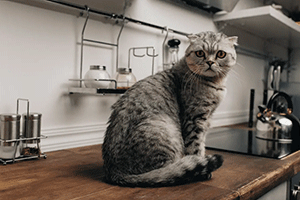
Product Name

Product Name
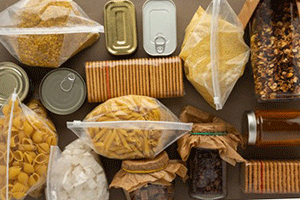
Product Name
"(Paid Links)" 
Pre-Treating Stains
Stains are a major cause of discoloration in white laundry. Pre-treating stains before washing can significantly improve the whiteness of your clothes.
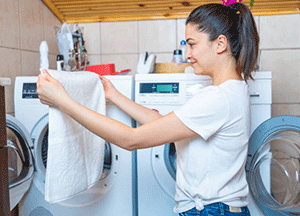
Stain Remover
Apply a commercial stain remover to the stained areas and let it sit for 15 minutes before washing.
DIY Solutions
Mix equal parts of baking soda and water to create a paste. Apply it to the stain and let it sit for 15-30 minutes.
Hydrogen Peroxide
For tough stains, dab hydrogen peroxide directly onto the stain and let it sit for a few minutes before washing.
Using the Right Detergent
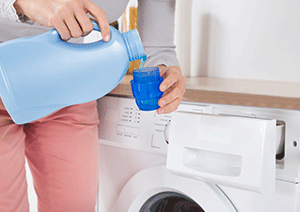
The detergent you use plays a crucial role in maintaining the whiteness of your laundry.
High-Quality Detergent
Use a detergent specifically formulated for white clothes. These detergents often contain optical brighteners that enhance whiteness.
Avoid Overloading
Do not overload the washing machine. This ensures that the detergent and water can effectively clean the clothes.
Adding Whitening Agents
Boost the whitening power of your laundry routine by adding one of these agents to your wash cycle:
Baking Soda
Add 1/2 cup of baking soda to the wash cycle to help brighten and deodorize white clothes.
Hydrogen Peroxide
Pour 1 cup of hydrogen peroxide into the bleach dispenser. It acts as a natural whitener and disinfectant.
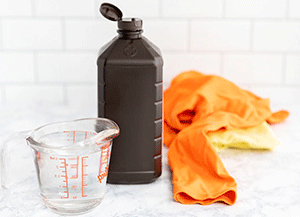
White Vinegar
Add 1 cup of white vinegar to the rinse cycle. It helps remove detergent residues and brightens whites.
Lemon Juice
Add 1/2 cup of lemon juice to the wash cycle. The natural bleaching properties of lemon juice can help restore whiteness.
Bluing Agent
A bluing agent can be added to the wash cycle to counteract yellowing. Follow the instructions on the product for the correct amount to use.
Choosing the Right Water Temperature
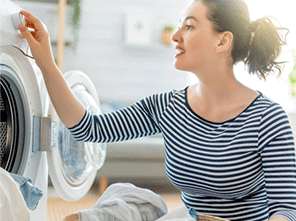
The temperature of the water you use can impact the effectiveness of your whitening efforts.
Hot Water
Washing white clothes in hot water can help remove stains and disinfect the fabric. However, check the care label to ensure the fabric can withstand hot temperatures.
Warm Water
For more delicate fabrics, use warm water to avoid damage while still effectively cleaning the clothes.
Using the Sun’s Power
Sunlight is a natural bleaching agent. Hanging your white laundry outside to dry can enhance their brightness.
Drying Outside
After washing, hang your white clothes and linens outside in direct sunlight. The UV rays help to naturally bleach the fabric.
Indoor Drying
If outdoor drying is not an option, hang the laundry near a sunny window.
Regular Maintenance
Keeping your whites white requires regular maintenance and care.
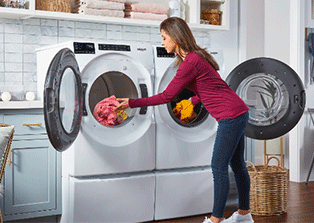
Separate Whites and Colors
Always wash white clothes separately from colored items to prevent color transfer.
Frequent Washing
Wash white clothes more frequently to prevent the buildup of sweat and oils that can cause yellowing.
Using Less Detergent
Excess detergent can leave residues that dull whites. Use the recommended amount for your load size.
Deep Cleaning Methods
For particularly stubborn yellowing or dinginess, a deeper cleaning method may be necessary.
Soaking in Baking Soda
Dissolve 1 cup of baking soda in 4 liters of warm water. Soak the white clothes for a few hours or overnight before washing.
Oxygen Bleach
Soak the clothes in a solution of oxygen bleach and water according to the product’s instructions. This can help remove tough stains and restore whiteness.
Boiling Method
For heavily yellowed items, boiling can be an effective method. Boil water and add a few slices of lemon. Submerge the white clothes in the boiling water for a few minutes, then wash as usual.
Avoiding Fabric Softeners
Fabric softeners can leave residues that dull the appearance of white clothes.
Alternatives
Use white vinegar in the rinse cycle as a natural fabric softener. It helps remove residues and keeps whites bright.
By incorporating these techniques and products into your laundry routine, you can restore and maintain the brightness of your white clothes and linens. Consistent care and the right methods will ensure your whites stay looking fresh and vibrant.
